By Lambert Strether of Corrente.
Bird Song of the Day
Northern Mockingbird, Southeast Greenway, Mueller, Travis, Texas, United States. “All sang.” A lot going on!
In Case You Might Miss…
- The urban-rural divide.
- Thomas Frank on populism (video).
- Blue periods ….
Politics
“So many of the social reactions that strike us as psychological are in fact a rational management of symbolic capital.” –Pierre Bourdieu, Classification Struggles
Biden Administration
“Here are the times that Biden, the White House said they wouldn’t pardon Hunter” [The Hill] • Dear Hunter!
Trump Transition
“Pete Hegseth’s Secret History” [Jane Meyer, The New Yorker]. The deck: “A whistle-blower report and other documents suggest that Trump’s nominee to run the Pentagon was forced out of previous leadership positions for financial mismanagement, sexist behavior, and being repeatedly intoxicated on the job.” More: ” A trail of documents, corroborated by the accounts of former colleagues, indicates that Hegseth was forced to step down by both of the two nonprofit advocacy groups that he ran—Veterans for Freedom and Concerned Veterans for America—in the face of serious allegations of financial mismanagement, sexual impropriety, and personal misconduct. A previously undisclosed whistle-blower report on Hegseth’s tenure as the president of Concerned Veterans for America, from 2013 until 2016, describes him as being repeatedly intoxicated while acting in his official capacity—to the point of needing to be carried out of the organization’s events. The detailed seven-page report—which was compiled by multiple former C.V.A. employees and sent to the organization’s senior management in February, 2015—states that, at one point, Hegseth had to be restrained while drunk from joining the dancers on the stage of a Louisiana strip club, where he had brought his team.” • And much else. “Previously undisclosed” is delicately put. From whom did Meyer get the report?
“Trump and His Team Are ‘Laughing’ at Biden’s Commitment to Decorum” [Rolling Stone]. “‘Some of us have been laughing about it,’ an incoming Trump administration official tells Rolling Stone. ‘[Democrats] spend all this time calling Donald Trump a Nazi and Hitler, and now it’s just: ‘Smile for the camera!'” • Indeed. Liberal Democrats can really turn on a dime. It’s amazing!
“Can Bhattacharya rescue the reputation of the scientific establishment?” [Washington Examiner] • By Betteridge’s Law, no.
Campaign Finance
“A Chinese national, charged with fraud by the SEC, just sent Donald Trump $18 million” [Popular Information]. “Chinese Crypto entrepreneur Justin Sun paid $6.2 million for a banana — sold by Sotheby’s as conceptual art — and then ate it last Friday. The banana is not Sun’s most notable recent purchase. On November 25, Sun purchased $30 million in crypto tokens from World Liberty Financial, a new crypto venture backed by President-elect Donald Trump. Sun said his company, TRON, was committed to “making America great again….. Sun’s decision to buy $30 million in WLF tokens has direct and immediate financial benefits for Trump.”
“Will the 2025 Women’s March galvanize or repel?” [The Hill]. “Multiple women leaders of left-leaning or non-profit women’s organizations who I have reached out to since the election have said they have no interest in participating in the next women’s march, scheduled for Jan. 18, 2025, nor did they know others who planned to participate. All asked for anonymity for fear of alienating funders or colleagues, but responses ranged from a declarative ‘f-that’ to a more thoughtful take that marching would be “performative.’… There appear to be three central issues as to why some women leaders who otherwise have been at the forefront of the contemporary women’s movement for so long are now turning away from the 2025 march. [(1)] While millions took to the streets and the event inspired a flurry of civic activity in the immediate term, it was not sustained, especially in this year’s election cycle… [(2)] [F]issures in the leadership and strategy of the first march have never been addressed. The 2017 event, which sprung from a call by activist Bob Bland on Facebook, was complicated and divisive from the start, despite the massive show of unity on the march day…. [(3)] Finally, marching does not, in this case, advance the real work that needs to be done to organize and transform electoral politics over the long term.” • Hmm. I think the possibility of “schooling behavior,” as with the instant and overwhelming support for Kamala when she was blessed by authority, is being underestimated here. Further, that marching “does not advance the real work” is so unsurprising it sounds like a rationalization. Since when did an NGO do “real work,” anyhow?
Spook Country
“Note on the FBI” [Matt Taibbi, Racket News]. “The transformation of the FBI back into a J. Edgar Hoover-style domestic spy service with sweeping political ambition has been a long-developing story, obscured by a political anomaly. In the first phase of this nightmare, between 2001 and 2016, the post-9/11 Bureau used the pretext of an enhanced counterintelligence mandate to throw off some mild restraints that had been placed on it the last time it had to be slapped down, i.e. after the Church Committee hearings in the 1970s. The second phase of its transformation took place after the election of Donald Trump, when the Bureau remade itself on the fly as a kind of government-in-exile, empowered by an outpouring of public and media support to view itself as a counterweight to the Trump government. This dichotomy has probably helped prevent a full portrait of the FBI’s makeover from appearing. The more troubling aspects to phase one were mostly found in reports by a then-adversarial ACLU or in testimonials of agents and investigators who spoke out in places like Democracy Now! or the Southern Poverty Law Center, with examples being people like Colleen Rowley and Mike German. The post-Trump exposes of FBI excess meanwhile often appeared in places like Mollie Hemingway’s The Federalist or broadcasts by the likes of Tucker Carlson or even sites like The Conservative Treehouse, and the signature FBI whistleblowers of this period were agents like Steve Friend, Garrett O’Boyle and Marcus Allen, testifying in front of Republican elected officials like Jim Jordan. They were all really talking about the same subject, but their complaints were broadcast to different audiences at different stages of the Bureau’s evolution.”
“No Background Checks, No Problem?” [Politico]. “The potential end of the formal vetting process will be front and center when the Senate considers Trump’s nominees in January. So will an even more attention-getting question raised by Trump’s selections: Should we move past the expectation that presidential appointees should have squeaky-clean personal records? But a quieter conversation is going on already among insiders who work on the often infuriating background-check ritual: What would such a transformation mean for how the capital does business? ‘Right now, it would seem to me that if you’ve got a significant problem, you probably don’t apply for these jobs in the first place,’ said Barbara McQuade, a former U.S. attorney and current University of Michigan law professor who has written about the clearance process. But ‘if you know that the background check is no longer very rigorous, you might give it a shot.'” • Lincoln on Grant, pilloried as a drunk: “I need this man. He fights.” Would Grant have made it through our current process? Probably not!
Democrats en déshabillé
“Why Democrats FEAR Populism (And Keep Losing)” (video) [Nathan J. Robinson, Current Affairs, YouTube].
Normally, I don’t link to Current Affairs, because Nathan J. Robinson union-busted his own magazine, but for Thomas Frank, I will make an exception.l
Realignment and Legitimacy
“The Political Economy of the Urban-Rural Divide” (PDF) [Keith Orejel, LPE Project]. “But something fundamentally new occurred in the mid-to-late 1990s. A yawning gap opened between urban and rural voters, with rural Americans voting in ever larger margins for the Republican Party and their metropolitan counterparts doing the same for Democrats. While political strategists and commentators tended to point to cultural interpretations for this divide—everything from Christian Nationalism to White Rural Rage—such explanations fail to account for the fact that this transformation occurred simultaneously across the entire nation, and indeed, in many other advanced industrial countries as well. As I will lay out in this post, the urban-rural divide was first and foremost a product of political economy. Starting in the 1990s, the Democratic Party emerged as the champion of a new globalized, knowledge economy, whose centralizing tendencies concentrated the most sophisticated and profitable enterprises in metropolitan areas. As a result, the historic party of industrial workers morphed into the home of highly educated metropolitan professionals. Meanwhile, rural areas struggled to adapt to the global era, becoming a repository for slow growth sectors—manufacturing, retail, construction, agriculture, and gas and oil—that provided mostly low paying, unskilled jobs. The Republican Party capitalized on this decline, arguing that their economic agenda of low taxes, minimal government spending, and weak regulations was critical to the well-being of rural industries and their largely non-college educated employees. By examining the emergence of the urban-rural divide in detail, we can see that the results of last week’s election were by no means inevitable. The Democratic Party’s collapse in the countryside was the predictable consequence of decisions to prioritize certain constituencies to the neglect of others. If the party is ever again to capture a sufficient governing majority to enact the social and economic agenda our country needs, it won’t be through eking out 2% higher turnout in the suburbs. It will be through transforming the Democratic Party into an organization that once again can compete in both urban and rural counties.” • Yep!
Syndemics
“I am in earnest — I will not equivocate — I will not excuse — I will not retreat a single inch — AND I WILL BE HEARD.” –William Lloyd Garrison
Covid Resources, United States (National): Transmission (CDC); Wastewater (CDC, Biobot; includes many counties; Wastewater Scan, includes drilldown by zip); Variants (CDC; Walgreens); “Iowa COVID-19 Tracker” (in IA, but national data). “Infection Control, Emergency Management, Safety, and General Thoughts” (especially on hospitalization by city).
Lambert here: Readers, thanks for the collective effort. To update any entry, do feel free to contact me at the address given with the plants. Please put “COVID” in the subject line. Thank you!
Resources, United States (Local): AK (dashboard); AL (dashboard); AR (dashboard); AZ (dashboard); CA (dashboard; Marin, dashboard; Stanford, wastewater; Oakland, wastewater); CO (dashboard; wastewater); CT (dashboard); DE (dashboard); FL (wastewater); GA (wastewater); HI (dashboard); IA (wastewater reports); ID (dashboard, Boise; dashboard, wastewater, Central Idaho; wastewater, Coeur d’Alene; dashboard, Spokane County); IL (wastewater); IN (dashboard); KS (dashboard; wastewater, Lawrence); KY (dashboard, Louisville); LA (dashboard); MA (wastewater); MD (dashboard); ME (dashboard); MI (wastewater; wastewater); MN (dashboard); MO (wastewater); MS (dashboard); MT (dashboard); NC (dashboard); ND (dashboard; wastewater); NE (dashboard); NH (wastewater); NJ (dashboard); NM (dashboard); NV (dashboard; wastewater, Southern NV); NY (dashboard); OH (dashboard); OK (dashboard); OR (dashboard); PA (dashboard); RI (dashboard); SC (dashboard); SD (dashboard); TN (dashboard); TX (dashboard); UT (wastewater); VA (wastewater); VT (dashboard); WA (dashboard; dashboard); WI (wastewater); WV (wastewater); WY (wastewater).
Resources, Canada (National): Wastewater (Government of Canada).
Resources, Canada (Provincial): ON (wastewater); QC (les eaux usées); BC (wastewater); BC, Vancouver (wastewater).
Hat tips to helpful readers: Alexis, anon (2), Art_DogCT, B24S, CanCyn, ChiGal, Chuck L, Festoonic, FM, FreeMarketApologist (4), Gumbo, hop2it, JB, JEHR, JF, JL Joe, John, JM (10), JustAnotherVolunteer, JW, KatieBird, KF, KidDoc, LL, Michael King, KF, LaRuse, mrsyk, MT, MT_Wild, otisyves, Petal (6), RK (2), RL, RM, Rod, square coats (11), tennesseewaltzer, Tom B., Utah, Bob White (3).
Stay safe out there!
Sequelae: Covid
“Nearly half of NYC’s aspiring drivers failed their DMV road tests this year” [Gothamist]. “: Nearly half the Big Apple’s would-be motorists have failed their driving tests so far this year. That failure rate — 48% — is higher than the statewide average of 43%, according to the Department of Motor Vehicles. The odds of flunking the test within the city has risen steadily since the COVID-19 pandemic: In 2021, the failure rate in the city was 41%, the data shows.” • Odd!
I wonder why these Google Trends results:
‘Tis a mystery!
Elite Maleficence
I guess we have our answer on why the teacher’s unions were silent on school ventilation and masking:
For more on the Great Barrington Declaration, see here.
“A look back at what COVID was really like” [Kevin Drum]. “Epidemiologists initially said that COVID was spread by droplets. That’s because the evidence pointed that way[1]. When evidence piled up that aerosol transmission was also important, they changed their public statements[2]. But their safety guidance didn’t change, because in most cases it didn’t matter how the virus was spread[3]. Standard epidemic hygiene was mostly the same either way[4].” • I rarely see so much error crammed into a single paragraph. Links on request, but I think readers know all this stuff. [1]. No. There was never any evidence for droplet dogma in general, or for Covid in particular. The epidemiologists spoke from ideology, not science. [2]. No. They fought changing public statements tooth and nail, as the recent UK hearings showed; at least one wrong WHO tweet is still up (last I checked, and I’ve been checking for years. [3] Of course it matters how the virus is spread. If the virus does not “spread like smoke” you don’t have to open the windows! Or use a Corsi-Rosenthal box. [4] No. In the beginning, and in the more beknighted facilities still, handwashing is recommended against Covid. But Covid is not transmitted by fomites. Somebody tell Drum to stay in his lane.
Lambert here: Even though the Covid numbers seem low, please remember that the data is not nearly as good as it once was, that it lags, and that the downside risks of catching Covid are considerable. For those who have developed their own personal protocols, I wouldn’t relax them. Maybe next year.
| Wastewater | |
| ★This week[1] CDC November 25 | Last week[2] CDC (until next week): |
|
|
|
| Variants [3] CDC November 23 | ★Emergency Room Visits[4] CDC November 23 |
|
|
|
| Hospitalization | |
| ★ New York[5] New York State, data November 29: | National [6] CDC November 28: |
|
|
|
| Positivity | |
| ★ National[7] Walgreens November 25: | Ohio[8] Cleveland Clinic November 23: |
|
|
|
| Travelers Data | |
| Positivity[9] CDC November 4: | Variants[10] CDC November 4: |
|
|
|
| Deaths | |
| Weekly Deaths vs. % Positivity [11] CDC November 2: | Weekly Deaths vs. ED Visits [12] CDC November 2: |
|
|
|
LEGEND
1) ★ for charts new today; all others are not updated.
2) For a full-size/full-resolution image, Command-click (MacOS) or right-click (Windows) on the chart thumbnail and “open image in new tab.”
NOTES
[1] (CDC) Good news!
[2] (CDC) Last week’s wastewater map.
[3] (CDC Variants) KP.* still popular. XEC has entered the chat. That WHO label, “Ommicron,” has done a great job normalizing successive waves of infection.
[4] (ED) Down.
[5] (Hospitalization: NY) Steadily down.
[6] (Hospitalization: CDC). Actually improved; it’s now one of the few charts to show the entire course of the pandemic to the present day.
[7] (Walgreens) Down.
[8] (Cleveland) Down.
[9] (Travelers: Positivity) Down.
[10] (Travelers: Variants). Now XEC.
[11] Deaths low, positivity down.
[12] Deaths low, ED down.
Stats Watch
Manufacturing: “United States ISM Manufacturing PMI” [Trading Economics]. “The ISM Manufacturing PMI for the US increased to 48.4 in November 2024 from 46.5 in October, beating forecasts of 47.5. The reading pointed to another albeit softer contraction in the manufacturing sector.”
The Bezzle: “Trump’s Return Heralds Litigation Peace for Crypto” [Wall Street Journal]. “The Securities and Exchange Commission sued crypto exchanges Binance, Coinbase and Kraken last year, accusing the platforms of dealing assets that are illegal to trade without regulatory supervision. Crypto executives had refused to comply with financial rules that they said were a bad fit for digital currencies.
The SEC, under the leadership of Chair Gary Gensler, mounted the legal campaign in lieu of the industry’s request to craft new crypto-specific regulations that embraced a lighter touch. Had the commission won in court, the victories would have compelled the freewheeling market to follow longstanding agency rules that protect investors who buy securities. But litigation can take many years to resolve, and with Donald Trump’s election to a second term, Gensler has run out of time before his biggest cases reach the finish line.
Trump’s return to the White House will mean a new era for crypto—with fewer government hurdles. The president-elect, shedding previous skepticism of crypto, has pledged support for the digital-asset industry [sic].” • Lordie. Cf. Veblen’s distinction between business and industry; crypto is all business.
The Bezzle: “Enter the ‘ether,’ where scammers weaponize your emotions” [WaPo]. “[Fraud prevention experts] Shadel and Pratkanis said the levers used to swindle Judith out of nearly $600,000 followed a template of sorts; a three-part strategy that swindlers customize to each potential victim…. The first step is to gain their trust…. To build this level of intimacy, scammers spend hours on the phone with their victims or bombard them with email or texts. The exchanges are intended to extract personal details to build rapport ahead of any request for money…. The second step of the fraud playbook is to get victims “under the ether,” the frenzied state in which they suspend reason…. Lastly, the impostors try to create a sense of urgency. For example, they might tell a victim that if they don’t move their money out of their accounts, the people who stole their Social Security number will take it all, or the funds will be frozen as part of a criminal prosecution. ‘It’s baked into our brains to respond to threats,’ Shadel said. ‘You’ve got to create a reason for them to do something now.’ Criminals construct a wonderland of the mind, a reality that appears authentic to the scam target. This is why the oft-used maxim, ‘If it’s too good to be true, it probably is,’ isn’t the most effective way to fight fraud.” • Seems like these methods are more universal than fraud.
Today’s Fear & Greed Index: 67 Greed (previous close: 66 Greed) [CNN]. One week ago: 64 (Greed). (0 is Extreme Fear; 100 is Extreme Greed). Last updated Dec 2 at 1:53:27 PM ET.
Rapture Index: Closes unchanged [Rapture Ready]. Record High, October 10, 2016: 189. Current: 183. (Remember that bringing on the Rapture is good.) • Hard to believe the Rapture Index is going down. Do these people know something we don’t?
Gallery
Pablo Picasso, The Roofs of Barcelona in the Moonlight pic.twitter.com/c3aRz3UYDX
— Impressions (@impression_ists) November 30, 2024
“Fish Have a Brain Microbiome. Could Humans Have One Too?” [Quanta]. “Recently, a study published in Science Advances provided the strongest evidence yet that a brain microbiome can and does exist in healthy vertebrates — fish, specifically. Researchers at the University of New Mexico discovered communities of bacteria thriving in salmon and trout brains. Many of the microbial species have special adaptations that allow them to survive in brain tissue, as well as techniques to cross the protective blood-brain barrier. Matthew Olm, a physiologist who studies the human microbiome at the University of Colorado, Boulder and was not involved with the study, is ‘inherently skeptical’ of the idea that populations of microbes could live in the brain, he said. But he found the new research convincing. ‘This is concrete evidence that brain microbiomes do exist in vertebrates,’ he said. ‘And so the idea that humans have a brain microbiome is not outlandish.'” • How little we know about anything…
“Handwriting but not typewriting leads to widespread brain connectivity: a high-density EEG study with implications for the classroom” [Frontiers in Psychology]. “As traditional handwriting is progressively being replaced by digital devices, it is essential to investigate the implications for the human brain. Brain electrical activity was recorded in 36 university students as they were handwriting visually presented words using a digital pen and typewriting the words on a keyboard. Connectivity analyses were performed on EEG data recorded with a 256-channel sensor array. When writing by hand, brain connectivity patterns were far more elaborate than when typewriting on a keyboard, as shown by widespread theta/alpha connectivity coherence patterns between network hubs and nodes in parietal and central brain regions. Existing literature indicates that connectivity patterns in these brain areas and at such frequencies are crucial for memory formation and for encoding new information and, therefore, are beneficial for learning. Our findings suggest that the spatiotemporal pattern from visual and proprioceptive information obtained through the precisely controlled hand movements when using a pen, contribute extensively to the brain’s connectivity patterns that promote learning.” • Interesting. IIRC, KLG doesn’t think much of “Frontiers in” Whatever; perhaps a reader would like to take a crack at the methodology.
Contact information for plants: Readers, feel free to contact me at lambert [UNDERSCORE] strether [DOT] corrente [AT] yahoo [DOT] com, to (a) find out how to send me a check if you are allergic to PayPal and (b) to find out how to send me images of plants. Vegetables are fine! Fungi, lichen, and coral are deemed to be honorary plants! If you want your handle to appear as a credit, please place it at the start of your mail in parentheses: (thus). Otherwise, I will anonymize by using your initials. See the previous Water Cooler (with plant) here. From TH:

TH writes: “We have about 4 or 5 hibiscus bushes lining our driveway. Sadley, I don’t recall their names, so I just call this the ‘pink one.'” Composition!
Readers: Water Cooler is a standalone entity not covered by the annual NC fundraiser. Material here is Lambert’s, and does not express the views of the Naked Capitalism site. If you see a link you especially like, or an item you wouldn’t see anywhere else, please do not hesitate to express your appreciation in tangible form. Remember, a tip jar is for tipping! Regular positive feedback both makes me feel good and lets me know I’m on the right track with coverage. When I get no donations for three or four days I get worried. More tangibly, a constant trickle of donations helps me with expenses, and I factor in that trickle when setting fundraising goals:
Here is the screen that will appear, which I have helpfully annotated:

If you hate PayPal, you can email me at lambert [UNDERSCORE] strether [DOT] corrente [AT] yahoo [DOT] com, and I will give you directions on how to send a check. Thank you!

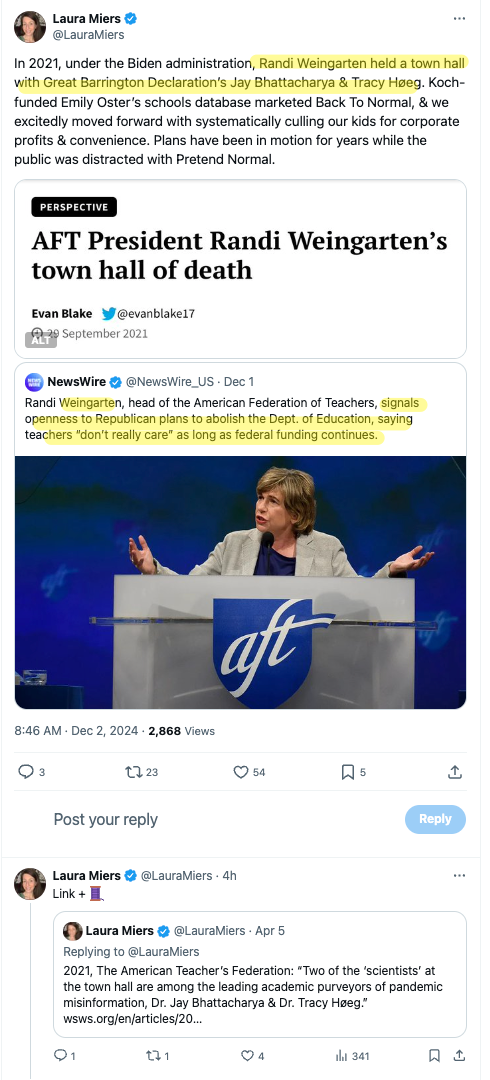
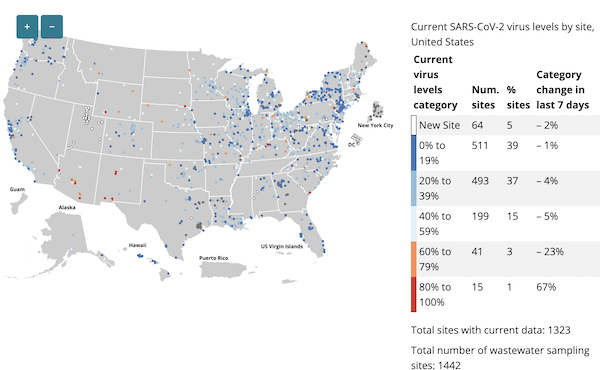
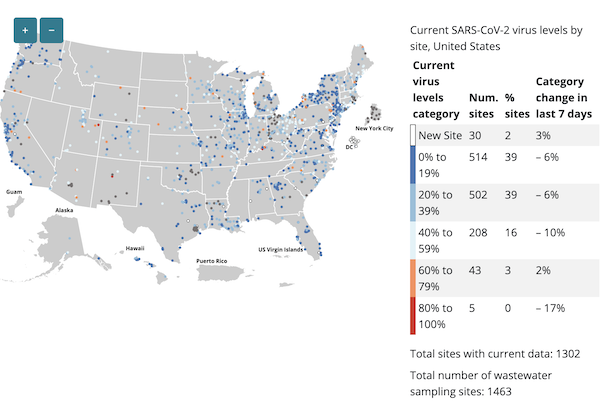
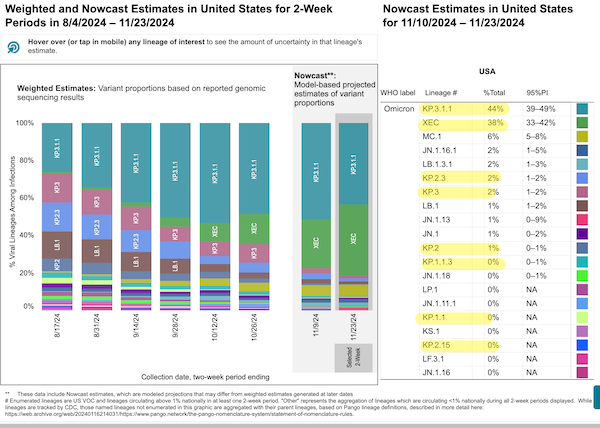
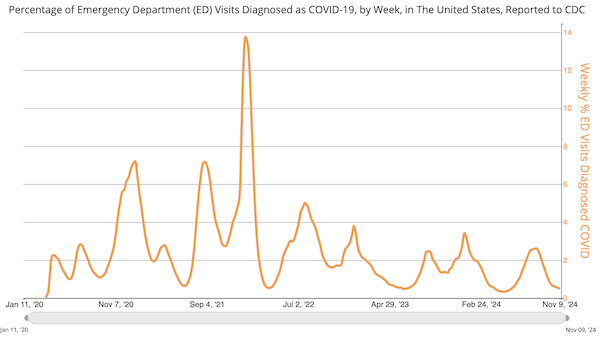
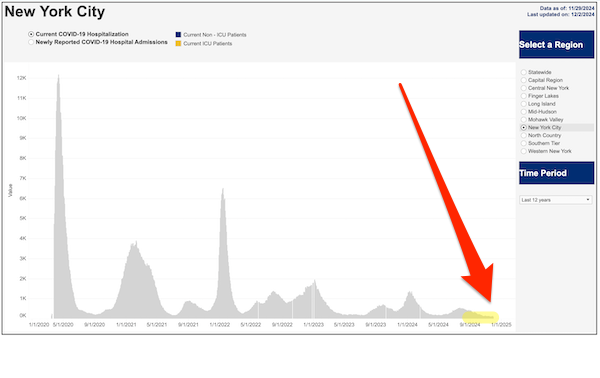
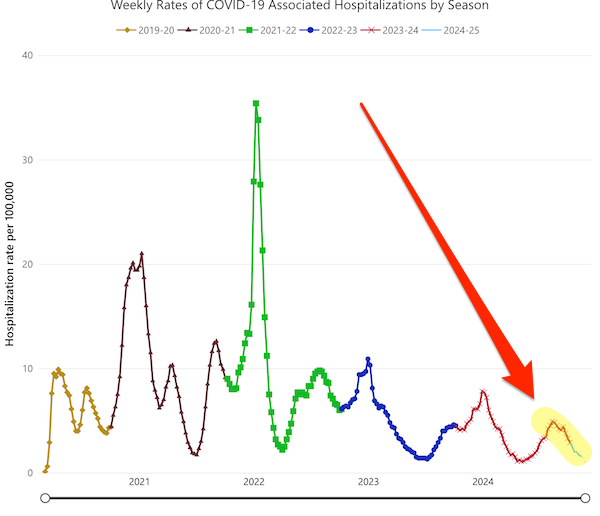
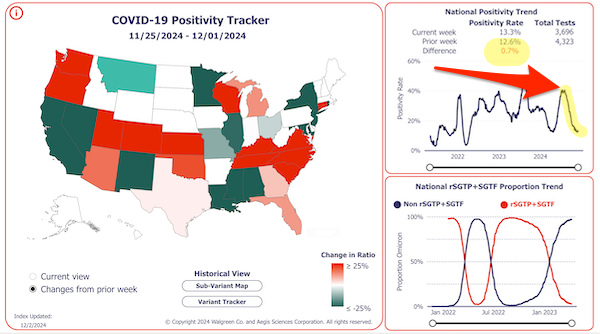
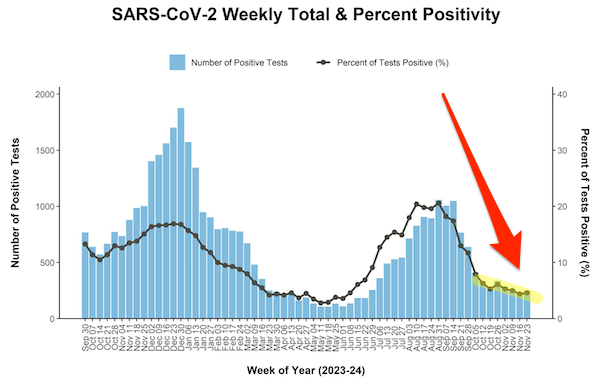
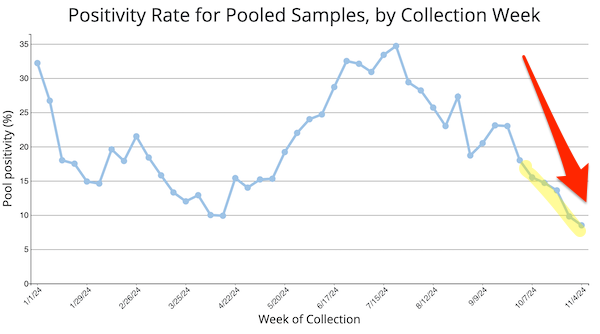
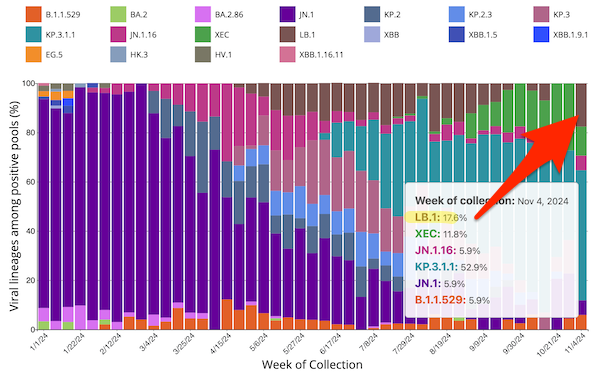
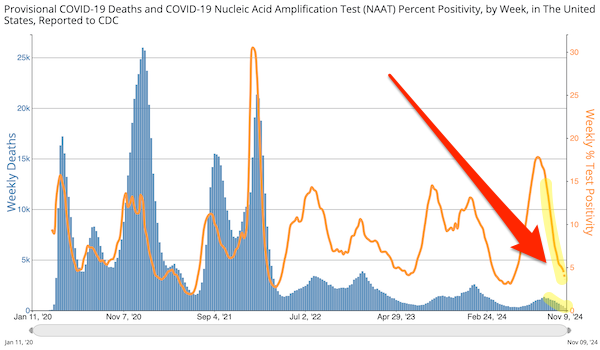
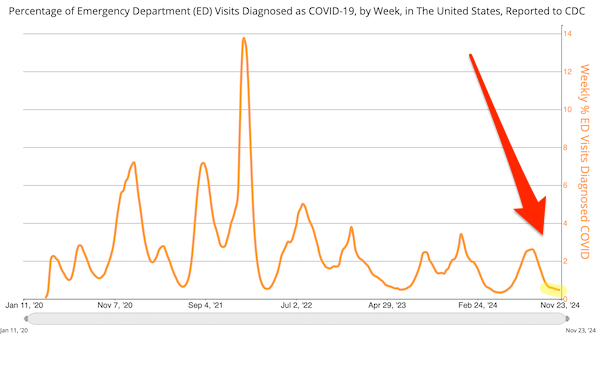


Re handwriting vs typing. There is a lot of research out there that finds that handwriting is better for learning than typing. Handwriting takes more processing in the brain is thought to better for retention. And going back quite a number years. I went back to school in the late 80s so no iPads or laptops to tote around then but I remember profs telling us to take notes and not just highlight text and when we read texts or articles. And I remember handwriting winning the research studies over the years in my college career as electronic devices became more and more ubiquitous in classroom settings. Admittedly part of that is due to the distractions offered by devices that have access to the Internet. Sorry for no links but the studies are easy to find.
This was my experience – laptops did not exist for most of my schooling, but when I went back to law school I noticed the difference right away between my retention of handwritten notes versus laptop notes. The level of engagement with the narrative in the classroom is much greater, even when it’s just a monologue by the teacher.
I learned early on in my college career that just the process of re-writing my notes from class would give the information “permanence”.
Did not necessarily have to revisit the notes afterwards, but just going through and processing them a second time would get me through the next exam or final.
For whatever reason, using colored pencils seemed to enhance the effect, with different colors for different headings and sections or bits of material.
https://www.zaner-bloser.com/national-handwriting-contest/in-the-news
Let us make this more popular.
An easy way to improve your handwriting is to use a fountain pen – specifically, a stub/italic nib fountain pen. I went from average-somewhat ugly cursive to handwriting literally everyone compliments on just by getting a TWSBI Eco with 1.1 stub nib. Bonus: you can have whatever color ink you like!
Mozart copied many musical scores as a young child, it seems to have had an impact. It’s probably a good thing he didn’t have a computer.
Attributable to the employment of muscle memory perhaps? Speaking of memory, if IIRC, Oliver Sacks observed that at least some patients with Alzheimer’s retained the ability to play tunes from memory on the piano.
I typed notes my freshman year of college but switched to handwritten and it’s much better. I know a lot of people will handwrite notes but on ipads. Wonder if that affects retention.
LA County Sheriff’s Dept protocol is holographic (hand written) notes on scene. Far better recall.
Admittedly it’s early to throw in the towel but I am deeply disappointed though not surprised that Trump’s Ukraine team doesn’t seem to have learned anything from Team Biden’s failures.
Expecting “sanctions relief” to be any sort of sweetener shows a shocking lack of objectivity. They’ve drunk the same kool-aid as Sullivan, Blinken, and other cretins.
As Yves has pointed out, Russia has now become pretty autarkic – the sanctions functioned like protectionist tariffs and allowed Russia to build out their own native industries. Why in the world would Putin ever think of dropping them when they’re the best thing ever to happen?
Even the Economist and the World Bank admit Russia’s GDP outperformed Europe by a large amount over the last three years.
Russian oil and gas can continue flow to Asia and trade in local currencies.
So expecting this to be your opening gambit smells like Kellogg just chugged a pitcher full of Jim Jones Kool-aid. The only rational reason for thinking this could work would be expecting Putin to bow to oligarchs inside Russia who want to go back to the bad old days when they could live off the vig.
I’m pretty sure those days are long gone. This sounds like an epic fail that will lead to an epic temper tantrum in February when Trump figures out that it isn’t going to work.
I would have thought Trump would be more clever than this, but then again, his grasp of foreign policy seems to be equivalent to a 13-year old.
Besides the Republicans who are all in on the project, I think part of the GOP Id is to assume Team Blue types are all pansies who simply haven’t strutted enough. Putin would understand if a “real man” told him what was what.
On one hand, the proposals are semi-reasonable a year or a year and a half ago, but I don’t think you can look past the GOP default position. They may have to face reality when they are in a room with Russian negotiators, but they are going to enter the room assuming Biden’s people did nothing but bumble about and kowtow.
I’d be surprised if they get to the stage of actual negotiations. Kellogg’s plan will likely not merit a response from Russia other than “nice try, get back to us when you have a real opening offer.”
And then Trump will face a choice. The Grahams and Cottons in the Senate will no doubt want a “real man” response but there are plenty of realists in the GOP House who want no part of WWIII. Remember that Biden already escalated using the ATACMS and Storm Shadows, and got Oreshnik as a response. Trump’s gonna go further? If he does, he owns the whole thing.
Alexander Mercouris believes the Kellogg plan is not a peace plan, but simply laid out the situation as understood at the time of its writing–last Spring IIRC. Mercouris also stated Trump has been in conversation with Orban, who has a good grasp on the reality of the situation, and who may be asked to mediate, or at least participate in early talks. Kellogg’s going to Russia after January is a good sign too–Churchill’s “better to jaw-jaw than war-war”, something the Biden clique never learned.
I can’t believe that Kellog wants to try to turn the Ukraine into a sort of North/South Korea scenario and think that the Russians will be cool with it. It is as Yves says. All these so-called experts do is negotiate between themselves and come up with plans that sound just fine with them but bear no resemblance with reality.
Dimitry Orlav told Nima the right an analogy is Vietnam, not Korea.
Korea might still be the right analogy, if you invert the sides, so to speak–Ukraine as North Korea, EU as China, and US as USSR. At the end of 1950, NK was on the verge of total destruction. The “freeze” came about after commitment (in aggregate) of millions of Chinese and tens of thousands of Soviet “volunteers” that endured two and a half years of very hard fighting. In other words, German, French, and British armies will have to be the main force fighting for Ukraine since the Ukrainian army is or will soon be as broken as the NK army in the fall of 1950.
The problem with this, of course, is that NATO does not have millions of troops to replace the Ukrainians with, and the “freeze” god demands blood, a lot of it.
Trump might not have many choices. As the war continues, not only is Ukraine’s army collapsing but so is its infrastructure. As Ukrainians will be unwilling to freeze to death in the dark, the result will be millions more Ukrainians will pack up and head for Europe. A massive migration will be a disaster for Europe and Ukraine.
I have added orts and scraps; more on politics. Enjoy!
I believe the other half of that Lincoln quote is, “give my other Generals what he drinks!”
“The Political Economy of the Urban-Rural Divide”
It’s global. North, South, East, or West…countries have similar dynamics.
For now, not much daylight between the current global economic order and any proposed “alternatives.”
The West still defines what constitutes economic success, defines the measurements – so to speak.
I think a big factor in the US divide that would not be a global factor is guns. Even in my very blue state, rural sections are deadset against gun control, and until very recently all the Democratic state reps from those sections also got favorable ratings from the NRA. Because you had to, if you wanted to keep getting elected. And getting lectured about it by know-nothing city people only helped widen the divide, which made it a gateway drug type of issue for other conservative positions. The Democrats had pretty much already lost rural voters on the gun control issue before they even added on the woke baloney.
When I lived in rural Sonoma County there were 2 Sheriff’s patrolling at night and the same # of Highway patrol officers.
If those cops were at the the intersection of River Rd and my access Rd and went full out without encountering a vehicle going the other way on that one lane rd, they were 10 minutes away.
If they were at the Guerneville substation a little more than 20 minutes, travelling flat out.
If they were dealing with an accident on Hwy 1, an hour or more away.
Since those living rural are on their own when things go to shit, they are a lot more likely to own guns.
Most often a 30-30 or a 12 gauge pump.
And, this is huge in my city-living opinion, the room to practice on your own land. I grew up with guns and went hunting a few times on farms in Iowa.
My reasons for not owning a gun:
Expensive
You have to practice all the time, and the idea of me going to a shooting range gives me the utter willies. I’m already an introvert, now I’m around all this shooting?
The bad odds of making a mistake in an emergency. Even cops miss most of the time in close range handgun fights.
Yes, I’ve thought about this, even if my town is very safe.
Probably if push comes to shove, a shot gun for the front door, and hope you just have to brandish it.
In rural areas there are a number of legitimate uses for guns, but what use are guns in a town/city except for shooting people? The Old West solution, allowing people to own/carry guns out in the country but turning them over to the sheriff when within a town, still seems like a sensible one although probably impossible to enforce in modern times.
> Scale-invariant topology and bursty branching of evolutionary trees emerge from niche construction
I said I’d look at this over the weekend; thanks to Judith for the extra material on niche construction.
> In short, the goal of this paper is to test whether or not such scale-interference does occur, using as a model the way in which it is detected in phase-transition phenomena.
I can follow much of the paper, but I don’t have the math on phase-transition phenomena, and can’t get things oriented to oblique my way in. So let’s say I don’t know what I’m talking about and go from there.
> The phenomenon that organisms modify the environment and thus create new niches is termed “niche construction”
No problem, coral reefs are a good example. Cowplops, too.
> Specifically, organisms can shape the environment they live in, change the selection pressure, and, as a result, reroute their own evolutionary path.
See Great Oxygenation Event.
> when an organism has a large niche value, it has a large number of possible ways to adapt to the environment and to eventually survive
True metabolically, but
> The speciation rate is treated as an increasing function of niche to reflect the fact that the more available niche space there is, the more likely it is for a speciation event to be successful.
I’m not comfortable with this assumption. It seems to get slidy between metabolic and genetic spaces, but that could be me not getting the angle.
There’s also some pattern incongruity in how they use the tree structures. While I think the idea is nifty, I see most of the effects as explicable in a standard framework. The phylogenetic bursts should appear during sudden environment shifts, s-curves on a resource chart, for instance. And whiffs of teleology, along the lines of Darwin preferring Modification With Descent to Evolution. And this:
> First, we have predicted a scaling form for the cross-over point A(t) as a function of r(E), separating the power law and the A ln A regions. Actual phylogenetic trees, however, have small sizes, and the cross-over is undetectable. Therefore, we cannot be sure whether or not actual phylogenetic trees follow the critical scaling.
So there’s no predictive value to the model.
In this sort of inquiry, you have to be very careful that what the equation shows matches the general understanding of the words used to describe it. Co-operation is a good instance. The interaction of evolution and ecology is valid and useful. I don’t see anything that disproves the premise of the paper, but I’m not up to the task of saying they’ve proven it.
Lots of good band names here :-)
Thank you very much!
What are the betting odds on a pardon for SBF?
How about his roommate?
Many teachers unions have routinely taken covid precautions very seriously. The NEA has greatly expanded its good work on that. Many locals fought and won model IAQ, 7 air exchanges an hour, MERV 13s, etc. One local teachers’ union rep posted the link to Wisconsin’s wastewater here in the chat back when you were gathering them. There are several statewide IAQ legislation advocated for by teachers unions.
I assume you know but for folks who don’t, the NEA and AFT are very different animals.
Given I quit society, I certainly want to believe COVID is actually happening; and it is. But not based on these Google Trend searches. Look at the same terms over a 5 year period, and you see… nothing exceptional. Not even a hint. Just March 22-28 2020 and Jan 2-8 2022 stand out, the former being obviously elevated.
Over 20 years, you get a gradual increase, originating long before 2020.
You also see “Note: An improvement to our data collection system was applied [date]” prior to some spikes.
A different source, CDC actually, but their graphs are so often useless: Disability and Health Data System
Location: All US & Territories
Category: Disability estimates
All available years
Cognitive Disability
You do get some increase from a low in 2020 past 2019 levels to 2022: 2% above 2019 levels. 2% of what? I don’t know. Their charts aren’t great. You can do a CSV export, maybe with numbers. The table shows the 95% confidence intervals. Would be nice if the graph had CI bars on it.
Or there’s this (PDF) from Rehabilitation Research and Training Center on Disability Statistics and Demographics (StatsRRTC), which uses ACS:
A scroll of Kagi Search results is mostly not promising. This is kind of a big gaping hole. Of course, someone needs to both identify as being disabled and have some place to report that to where data is compiled and reported. And there will be specific definitions that apply.
So we’re left with anecdotes.
Did find something. Chronic absenteeism rates, for CA.
https://www.cde.ca.gov/ds/ad/crabtop.asp
With row data: Academic Year (Multi-Year)
We do see abseenteeism going up, still 10% higher than 2018-19 even coming off the Pandemic high of a few years earlier. Big difference here. Thanks Randi!
Civilian Labor Force – With a Disability, 16 Years and over graph: https://fred.stlouisfed.org/series/LNU01074597
Yes, but that stops increasing in mid 2023. So from that, it is possible to conclude that the worst of this is behind us. Maybe it is. I don’t know. But given what we know an infection can do, and that repeat infection can continue in perpetuity, I’m surprised I can’t find any evidence of increasing disability past 2023. We don’t seriously collect data or track this in the US, so who knows. I find it puzzling.
“Normally, I don’t link to Current Affairs, because Nathan J. Robinson union-busted his own magazine, but for Thomas Frank, I will make an exception”
Even the NY Times rediscovered T. Frank a few weeks ago:
https://www.nytimes.com/2024/11/09/opinion/democrats-trump-elites-centrism.html
Liberals at long last listening? Ever the giddy optimist, me.
Probably will get more of them to listen….after some financial bubbles burst.
As long as those are floated, they have an interest in the divisive status quo.
My experience in school in the late 1980’s was similar to what others have commented. One history professor structured his classes to involve auditory lectures, writing a journal, and reading assigned texts. All senses were involved in learning.
Thanks for the Thomas Frank link. Worth making the exception.
I enjoyed it too, even though Robinson’s an odd duck. I especially enjoyed the autobiographical portion. I knew he had grown up in Mission Hills and attended Shawnee Mission East, and often wondered how he had ended up on the Left with that background. I went to school with those same people in concentrated form in a prep school on the other side of State Line Road as even more of an outsider than Frank as a farmboy from the sticks.
I “get” Frank better now.
Taibbi and Kirn ATW toniight.
America This Week
ATW Livestream Tonight at 8 PM ET/7 PM CT
https://www.racket.news/p/atw-livestream-tonight-at-8-pm-et7-2b1
YESSSSS!!!!!
(thanks)
what I would disagree with Kirn: The government institutions were NEVER better than the average citizen. Not now not 200 years ago.
He is of course 1000% right – and that´s important – that the propaganda and fear-mongering over Trump overreaching his powers is total bullshit. I read it again today in a JACOBIN piece. Not an issue of any left outlet goes by without addressing this.
It´s like the new religion.
It’s a slow night so I thought I would plug a diversion for you. I have always enjoyed Alex Christoforou’s clown world presentations. Humor at the absurd and hypocritical behavior of politicians is always healing. I was surprised to find there is someone or several people on X going by the name of Dr, Clown PhD. Absolutely amazing fake videos that are very funny. The link is an ‘out take’ from Kamala’s address five days ago.
It depends what you mean by the word advance. If you think you’re going to hold a march and then the structure of evil powers will suddenly collapse then yes, this statement is true. I think it’s also fair to say that many social change movements fall into this kind of thinking, that having some big marches is all they need to do. Perhaps the speaker here is thinking of those. Marching cannot be your only tactic.
On the other hand, marching and picketing and other things are definitely an important weapon in the arsenal of social change. It shows the size and energy of your movement in a vivid way, it lets people who are committed to the same things see and meet each other, it’s newsworthy and gets your issue into the media, and it also gathers a lot of people together in one place for follow-on organizing activities (collecting names and announcing future events, eg). This is why marching has been a feature of social change movements for centuries.
One should be wary of things like the Million Man March ™ or similar, where the march itself is obviously the goal. Confusing goals with tactics is a sign of inexperienced and ineffective leadership.
The Democrat Party will never be transformed. Its operatives and donors — Lambert’s “flex net” or “iron octagon” — will insure this never happens. This is the same infantile prescription that third parties / partiers can successfully turn aside the present U.S. government’s boot heel on the neck of U.S. workers and ordinary people, or that turning a few knobs and dials can accomplish something similar.
The Democrat Party can be destroyed, but it cannot be transformed. The US government can be overthrown and thus replaced in toto but it cannot be made friendlier to ordinary people in any serious way. These are prescriptions without any analysis whatsoever to the layers and layers of insurance policies and iron gates making any such gambits a fool’s errand. People like this do everyone short by not even doing the analysis.
These prescribers are childish and should be known as such. It’s time to put away childish things. Time is short.
“Can Bhattacharya rescue the reputation of the scientific establishment?”
Sounds like an Onion headline to me. He and his ilk helped wreck the concept of public health through an ideological approach rather than an actual scientific one and now this is the guy who will restore people’s faith in the scientific establishment? The Washington Examiner is sucking up to him but hard but where it says that ‘He can make NIH grants dependent on open-mindedness, empiricism, and a readiness to interrogate the consensus.’ I can imagine what sort of studies that he will be funding. When the next major pandemic hits, his ideas will lead America into a terrible mess through his denialism of facts and studies and it looks like we will not have long to wait.
Bhattacharya is awful, but is he any worse than the rest of the public health establishment? I have a relative who works for the CDC. I asked him what’s up with bird flu, is it mild and should we get back to work? He said they’re already printing the brochures. (He was joking, sorta, I think).
I gave up on Drum and his commentariat a long time ago. You might as well just read DNC press releases.
Didn’t he write for The Nation?
I meant to put a (shudder) comment on that. All of those writers are still pushing that Dem party line. David Corn too. What a jackass.
I meant to put a (shudder) comment on that. All of those writers are still pushing that Dem party line. David Corn too, he never quits being the stooge.
No, that it to subscribe to our RSS feed for comments only. Reading and commenting are always free.
We have a lot of mod triggers now. Even well regarded regulars like Aurelien and Colonel Smithers get snagged all the time and they wait for their comments to be freed with good humor. You need to not take this personally.
The urban/rural divide article was okay but the casual reference to rural jobs as “unskilled” rubbed me the wrong way. An exsmple of the condescion that deepens the divide.